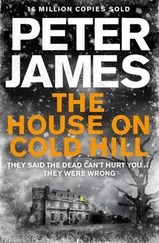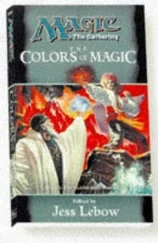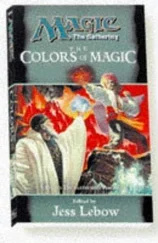Andrei, when I reached home, looked as if he was older than me by a year, not a day. At dinner the footman served him second after Father, while my turn came after our stepmother. Even as I dug into my meat pie, Andrei let his languish on a plate, while he—like an adult—discussed with Father our military prospects against Prussia in what would later be called the Seven Years’ War. This was the first time I heard—or remember hearing of it. Before this moment, my world was too small to hold a war in Europe. Aren’t you supposed to be sworn in soon? they kept asking me. It is not for another three weeks, I lied.
That day, meanwhile, was right upon me. I spent it restlessly, filling with a mix of self-righteousness and fear. By evening I was overflowing and ready to take my cause to Andrei. “What have I done to you? What offense have I ever given? Why are you mad at me?”
He was packing his chest. “Am not,” he said.
“That time at the Cadets was just a joke, like we’ve always done. You know it!”
He held an embroidered vest at arm’s length and scrutinized it. “You want this one?” He tossed it in my lap.
“It’s new,” I stated, wondering whether it was a gesture of reconciliation.
“Auntie’s gift. I don’t want it. Too showy for me.”
No, it wasn’t a reconciliation. I said, “If it’s about the Guard—”
“I don’t want to be a Guard. They’re nothing but peacocks.” He resumed packing.
I said, “It’s today. The swearing-in. I am missing it.”
He looked up. “Now, that’s stupid.”
And I had hoped to impress him! “You just called them peacocks!”
“Better than nothing. You want to remain a juvenile ?”
“No.” I did not know what I wanted, apart from staying in his good graces. “You being so distant does not help.”
“I am not distant,” Andrei said. “Just different.”
“Different how ?”
“Go back, maybe they’ll still take you.”
I had a miracle happen to me on the road … I almost said it. I wanted to, it was my last trump card. But I bit my tongue. It would win me no appreciation of his, would it?
I refrained, I think, or else a servant boy prevented my confession, a lad who came in with some brown and crumbling chunks of homemade soap for Andrei. The conversation was over. I picked myself up and left the room, blindsided by a thought that came for the first time, never to leave: what if my brother had not been running from home—but from me ? Thus ended my childhood, some seven years after Andrei had ended his in the blaze of our ice palace.
Looking back, I know I loved him, and I know there had been sweet, unself-conscious moments in our brotherhood that no ice palace could overshadow: Being five years old and running full speed down the enfilade of sunlit rooms, shouting his name, a special, diminutive version of it that we used between the two of us: Andrewsha-a-a! And seeing him charge from the other, distant end, with a similar battle cry: Alex-asha-a-a-a! And then colliding in the middle, laughing so hard that the backs of our heads would start hurting.
Now we were only running away from each other.
* * *
I slunk back to the Preobrazhensky. On a bright December day they tied me to a sawhorse, a hand at each end; I could either stand bent over, or kneel. “Barebacked or leave the undershirt on?” the officers asked. I opted to leave the shirt out of it. I stood first, then knelt, waiting for my ten lashes.
My punisher, a subaltern not two years older than me, stroked the knout as if it were a mane of hair and told me, “You’ll be all right. No brass, see? Just leather. And I won’t flick my wrist.”
On the first lash I nearly dislocated my shoulders. The pain was exquisite, despite his not flicking . After the fifth he stopped and dumped a bucket of snow on my back, “Cool it, rookie,” adding into my ear, “Our Lady-Colonel is here. Aren’t you lucky.” The “Lady-Colonel” of course was the empress herself, Elizaveta. My eyes downcast, I saw that her crinoline trembled like a dome of jelly as she approached. I saw the pointy tips of her pumps on a Persian rug laid out in the snow. A gloved, perfumed hand touched my cheek. “He learned his lesson, haven’t you, darling? Get off your knees, let me pardon you… Such a strong one!”
Imagine a youth, bare-trunked, loose-tressed, bound by his wrists, and piquantly raw with pain. Imagine the zestful mix of defiance and gratitude he puts into kneeling before his middle-aged empress. She got her arousal, I got my pardon.
The only peculiar detail… I distinctly remember: when my punisher’s mercy landed me with a bucketful of snow on my lacerated back, it brought me no relief whatsoever. No anesthesia, not even a sensation of cold.
* * *
For the next four years, each fighting season—that is, spring, summer, and fall—Andrei would go to war with the Prussians. It is a miracle he did not get himself killed during his first one, in 1757, a bloody muddle, the so-called triumph of the Russian guns at Gross-Jagersdorf, and then in 1758 at the Russian defeat at Zorndorf. By 1759 the Russian army had learned its lesson and did quite well at Frankfurt an der Oder, Kunersdorf, then Berlin. I, meanwhile, was busy growing my braid to just the right length, doing drills, or escorting the court in its seasonal migrations from one countryside palace to another. Yes, all we did was guard . The last time the Preobrazhensky went to war was under Peter the Great. Now, only an occasional detachment, a handful of volunteering hotheads went out on campaign, and usually returned without a single battle.
Winter or summer court residence, there was always a good-size banquet hall where we officers would spend time drinking wine and playing cards. My former punisher-hazer, whom I now knew as Paul Svetogorov, or Paulie, had taken me under his wing and from him I learned the ins and outs of a Guardsman’s life.
A proud owner of Viking looks, soulful tenor, and a mobile brow whose flutter conveyed a range of affects from scrutiny to flirtation, Svetogorov was impossible to ignore. The Guard is the navel of the earth, he would reiterate, the cream of the crop . Andrei, on the other hand, when he would leave the troops billeted in Poland or Livonia and come home for Christmas, would greet me with, How go the peacock’s labors?
How go the footslogger’s travails? I would answer. Each winter homecoming Andrei’s jaw would be set harder, his speech flow slower, his look appear duller. It is hardly surprising that as time went by I was more and more inclined to feel like the navel of the earth rather than a peacock.
* * *
Empress Elizaveta was very fond of the military in general and of the manliness of her bodyguard in particular. In St. Petersburg, she lodged the whole first grenadier battalion (to which I belonged) on Millionnaya Street, in a large three-story building just across a canal from her Winter Palace. Officers on the top floor, subalterns and soldiers below. Life was a frolic in that house, a jolly good time.
We weren’t just Her Majesty’s security, we accentuated her, we were the choirboys to the performance that was her life. On Christmas morning we were encouraged to barge into the imperial boudoir with celebratory shouts. At Easter Eve we lined up in a pious backdrop to the church service and the procession outdoors that followed (having secretly wagered on which one of us would get to trade kisses with the empress—a customary accompaniment to the “Christ is risen”—“Truly risen” exchange). Svetogorov would twitch his brow and say, “Know, pal Alexis, when to go and when to come, and you’ll go far.”
Читать дальше












